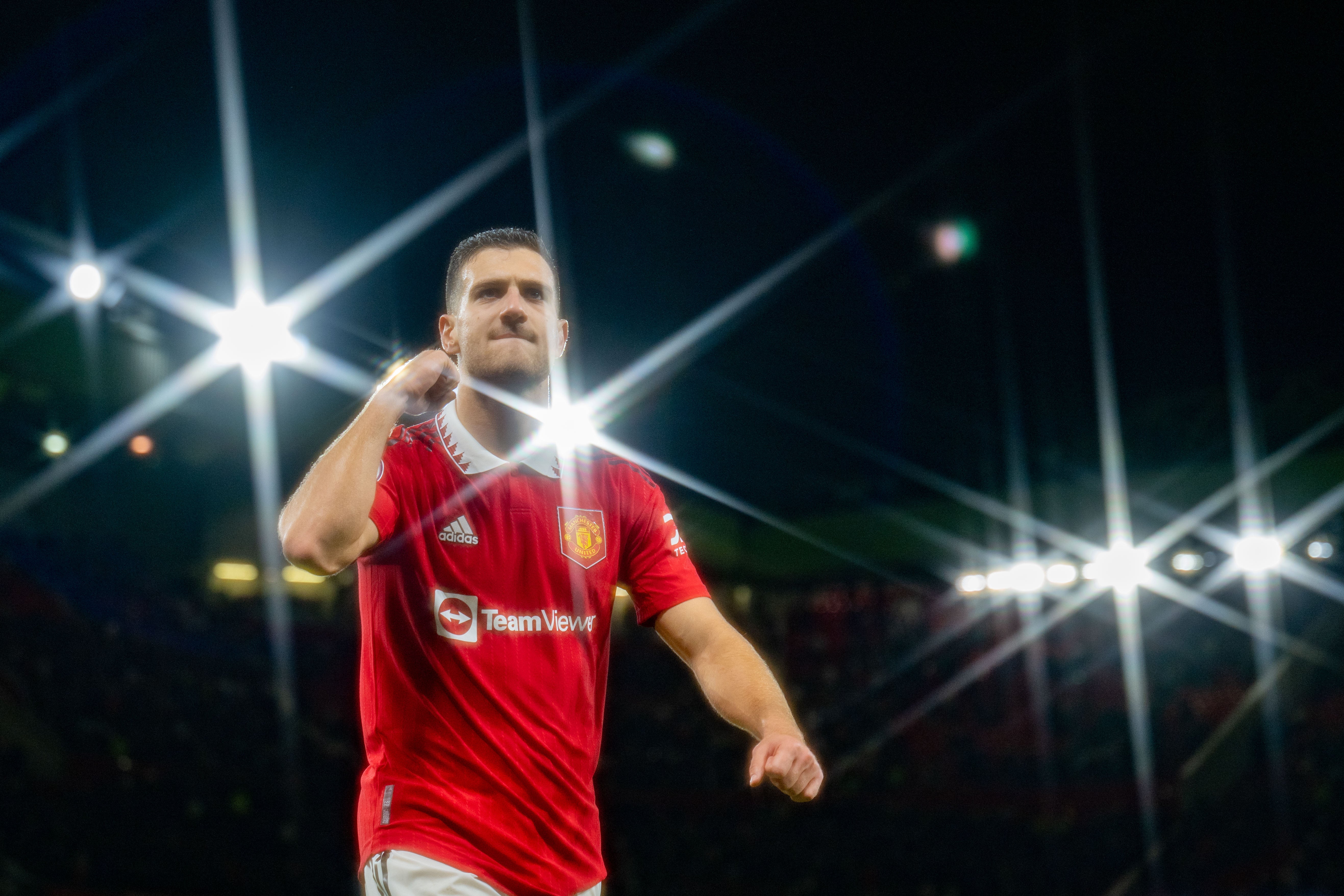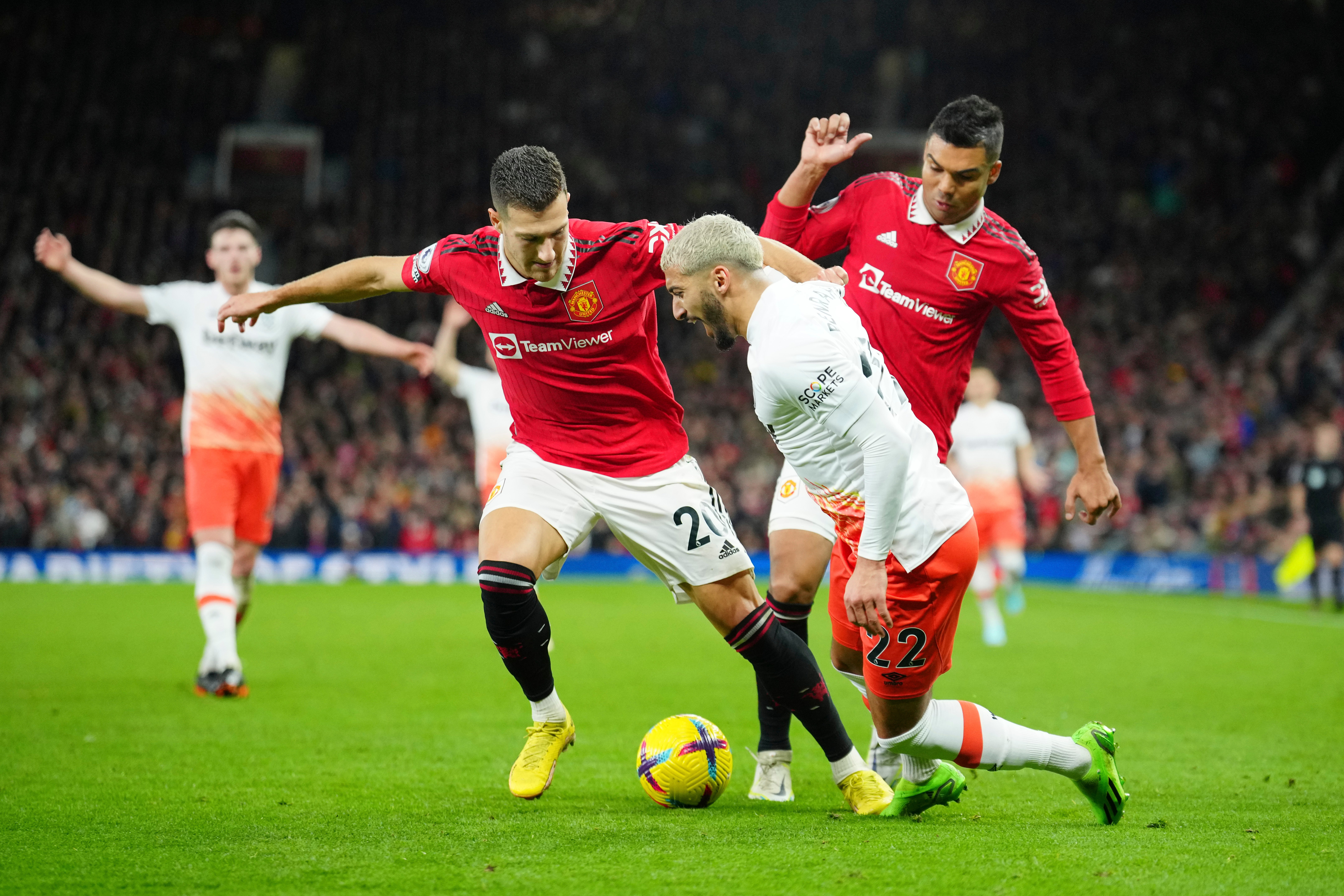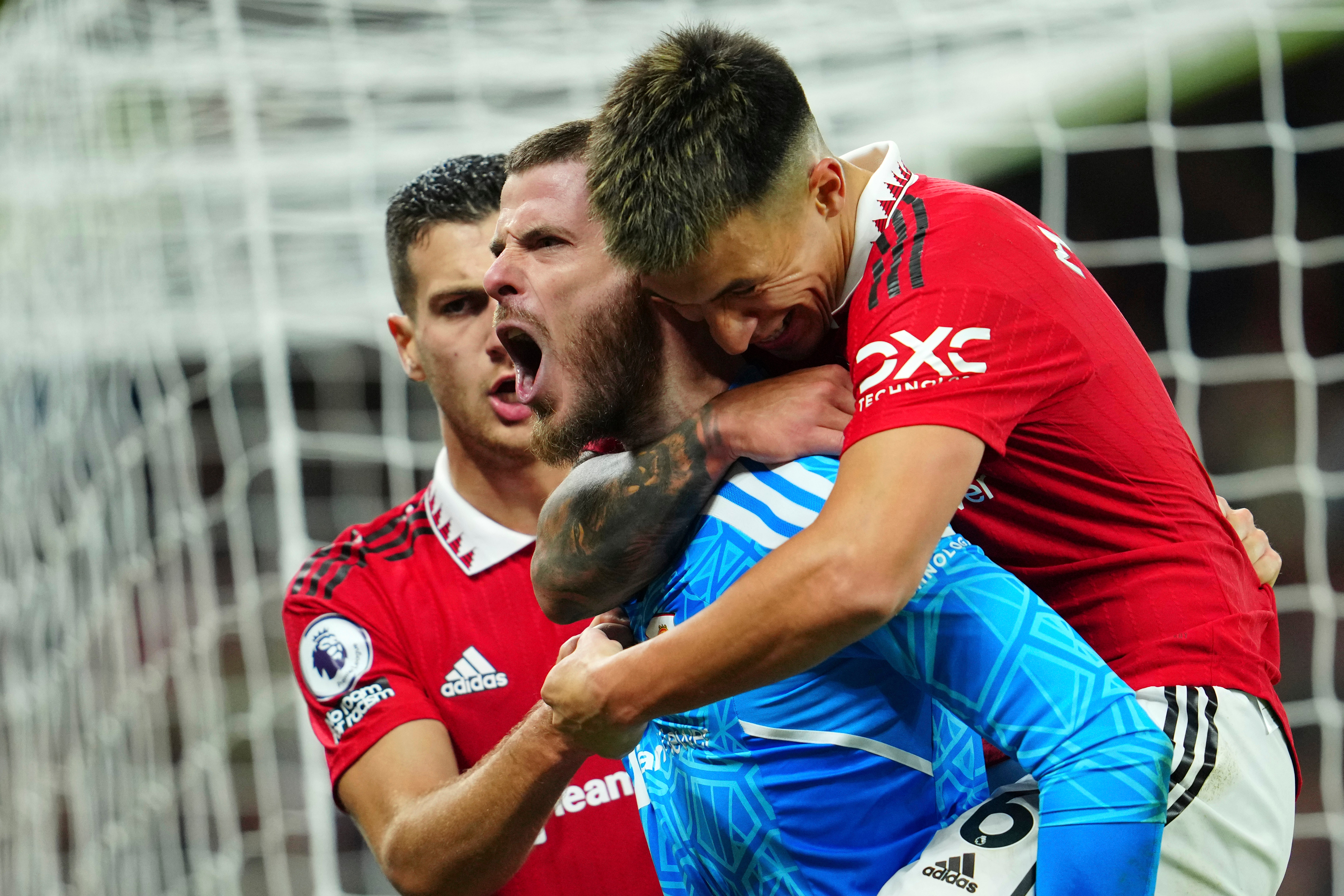Diogo Dalot’s remarkable turnaround brings constant presence to resurgent Manchester United
The Portuguese full-back is the only player to start every match for Erik ten Hag, completing an impressive transformation at Old Trafford

At a time of change around Manchester United, one of the most notable differences is a constant presence. Diogo Dalot is the only outfield player to have started every single game of Erik ten Hag’s tenure so far, playing all but five minutes of their Premier League campaign.
His displays, striking the right balance between defensive discipline and proactive play in possession, have rebuilt his Old Trafford career and his performance in the hard-fought win over West Ham United may have been the best yet.
It was hard to pick out just one highlight. As West Ham turned the screw in search of an equaliser in the second half, Dalot’s several headed clearances under pressure at the far post bought United time and brought much-needed relief.
Yet there was also his part in Marcus Rashford’s decisive goal – the presence of mind he showed when taking a throw-in, ignoring Casemiro’s call to quickly throw it backwards, instead waiting for an opportunity to play it forwards and set the match-winning move in motion.
One of the abiding images, though, came at full time. After each spectacular David de Gea save that had stopped West Ham from levelling late on, Dalot had celebrated with the United goalkeeper, on one occasion running the length of the penalty area to bump chests with him. Now that the game had been won, he and Lisandro Martinez – another player who embodies United’s new-found fighting spirit – mobbed De Gea, practically dragging him into Old Trafford’s old Scoreboard End.
“I’m really happy with his development,” Ten Hag said of Dalot while speaking to Sky Sports after the final whistle, highlighting his improvement defensively in particular. “His timing and duels are getting better.” Similar praise followed in his post-match press conference. “From the start, you see he has this strength and physical power to bring in his attacking game,” Ten Hag added. “He's progressing game-to-game defending as well, cooperating with his winger. He’s made really good progress.”
It is all quite the turnaround for a player who was so far away from starting for United’s first team at one point, he was playing against them. Dalot faced Ole Gunnar Solskjaer’s United twice in the Europa League while on loan at Milan two seasons ago, with Uefa rules bizarrely allowing for loanees to come up against their parent club. United reached the quarter-finals at Dalot’s expense. At the time, a permanent move to Milan appeared the likeliest course of action in a floundering Old Trafford career.

Dalot’s face never quite fitted at Solskjaer’s United. There was a sense that he was unambiguously a Jose Mourinho signing and therefore not a serious part of his successor’s plans. That much was clear when, during Project Restart, Timothy Fosu-Mensah was brought in from the cold to provide cover to first-choice right-back Aaron Wan-Bissaka despite Dalot being fit and available. Between then and the start of the Milan loan midway through the following season, Dalot made just two appearances.
Solskjaer’s opinion of Dalot softened last year, it seemed, when he was granted more opportunities off the substitutes’ bench but starts were few and far between. Whatever Solskjaer thought of Dalot, what is clear is that all three men who have sat in the United dugout since the Norwegian’s dismissal have taken a different view. Caretaker manager Michael Carrick handed Dalot his first league start. Interim Ralf Rangnick started him in 18 of his 24 league games in charge. And now, under Ten Hag, he is an ever-present and a problem position no longer appears to be in need of attention.
Except that in this most condensed of schedules, and with Dalot also set to travel to the World Cup with Portugal, he cannot keep playing every game. He needs cover and he needs competition, as Ten Hag pointed out in his post-match media rounds. “I have to mention, Man United need two good full-backs [on the right] because we have a lot of games to play,” Dalot’s manager insisted.

Wan-Bissaka is now the one on the sidelines, having played just four minutes of football all season. His absence has been partly enforced by injury of late but Ten Hag’s preference for full-backs who are comfortable in possession is the main factor. Wan-Bissaka’s limitations in that regard are no secret and were partly why United were listening to offers for a £50m defender during the summer.
But if Wan-Bissaka needs a reminder that things can change quickly in football, he need only look at the player now above him in the pecking order. Dalot is still only 23 years old. There are plenty of aspects to his game which can be improved and may well be under Ten Hag’s tutelage. Yet in his fifth season at Old Trafford, he is beginning to look like the well-rounded right-back that United have long been missing. And after being overlooked for so long, currently, they cannot do without him.

Join our commenting forum
Join thought-provoking conversations, follow other Independent readers and see their replies
Comments


Bookmark popover
Removed from bookmarks